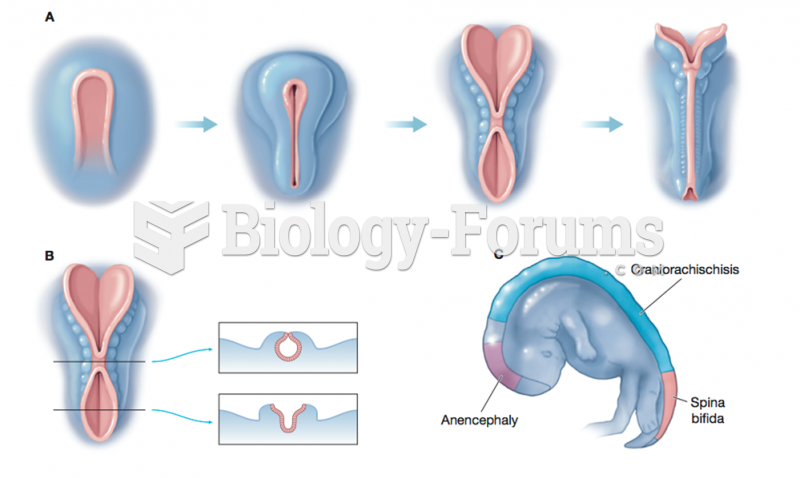Answer to Question 1
The brain and spinal cord develop from the neural tube, and defects in its orderly formation during the early weeks of pregnancy may result in various central nervous system disorders and death.
Folate supplements taken 1 month before conception and continued throughout the first trimester of pregnancy can help prevent neural tube defects. For this reason, all women of childbearing age who are capable of becoming pregnant should consume 0.4 milligram (400 micrograms) of folate dailyeasily accomplished by eating folate-rich foods, folate-fortified foods, and a multivitamin supplement daily. Because half of the pregnancies each year are unplanned and because neural tube defects occur early in development before most women realize they are pregnant, the Food and Drug Administration (FDA) has mandated that grain products be fortified to deliver folate to the U.S. population. Labels on fortified products may claim that adequate intake of folate has been shown to reduce the risk of neural tube defects. Fortification has improved folate status in women of childbearing age and lowered the prevalence rate of neural tube defects.
Some research suggests that folate taken before and during pregnancy may also prevent congenital birth defects, such as cleft lip and cleft palate, and neurodevelopmental disorders, such as autism. Such findings strengthen recommendations for women to pay attention to their folate needs.
Answer to Question 2
Because the synthesis of DNA and the transfer of methyl groups depend on folate, its relationships with cancer are complex, depending on the type of cancer and the timing of folate supplementation. Some research suggests that sufficient folate may protect against the initiation of cancer, whereas other studies report that high intakes may enhance progression once cancer has begun. In general, foods containing folate probably reduce the risk of pancreatic cancer. Limited evidence suggests that folate may also reduce the risk of esophageal and colorectal cancer.







